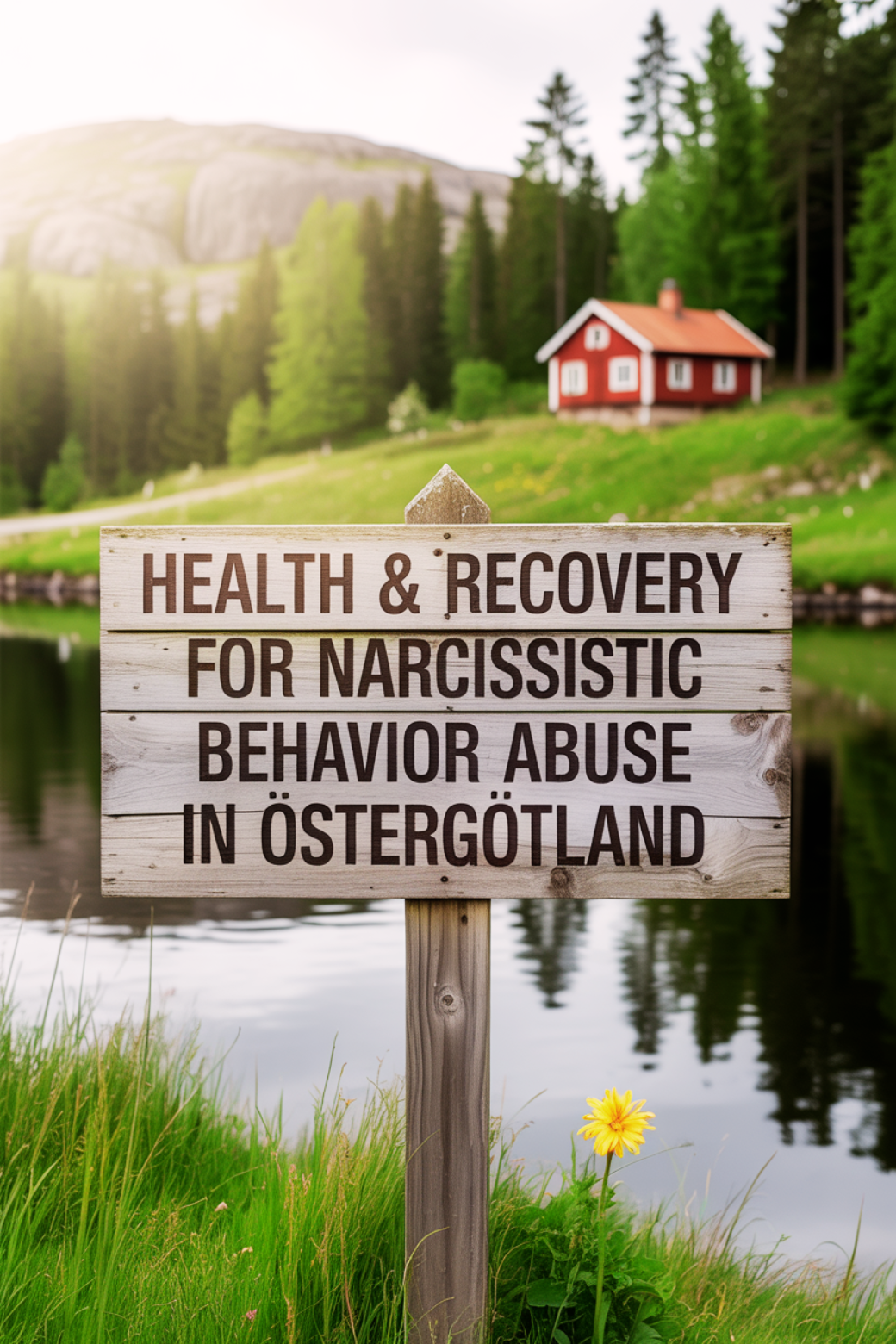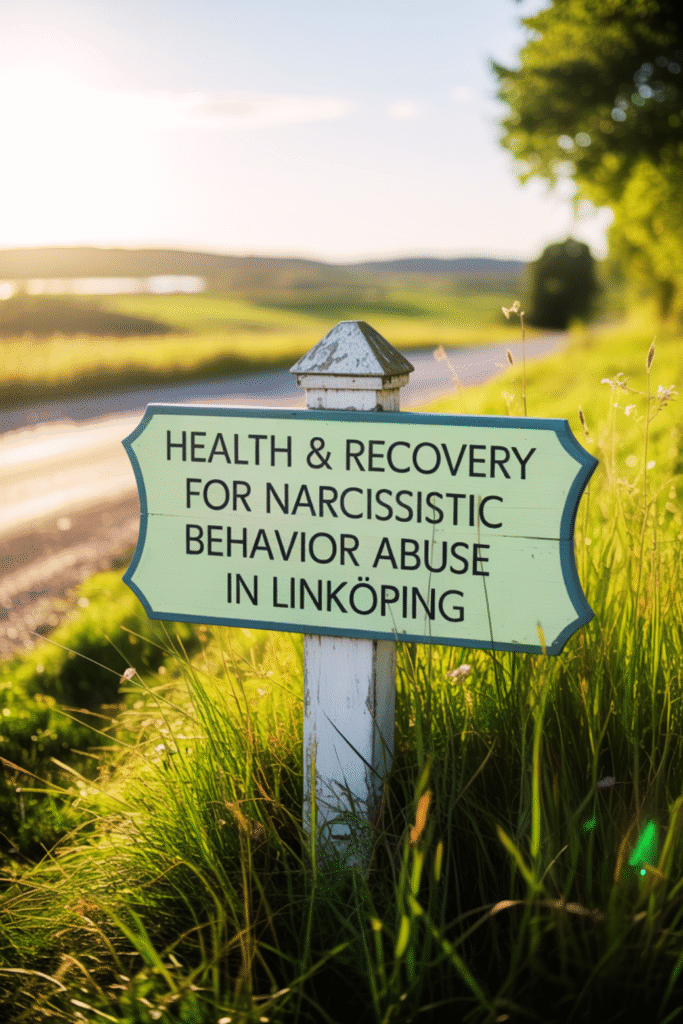Now Reading: How to Find the Right Therapist in Sweden After Narcissistic Abuse
- 01
How to Find the Right Therapist in Sweden After Narcissistic Abuse

How to Find the Right Therapist in Sweden After Narcissistic Abuse
10 Real Questions to Protect Your Healing
Healing from narcissistic abuse isn’t just about leaving the relationship—it’s about finding safety, clarity, and someone who truly understands what you’ve been through. And let’s be honest: not every therapist does.
This guide was created for survivors in Sweden, especially those in regions like Östergötland, who are searching for trauma-aware, survivor-affirming support that goes beyond vague “talk therapy.” Because when your identity has been dismantled, your reality questioned, and your worth erased—you don’t need surface-level support. You need someone who gets it.
🛑 Not All Therapy Is Safe for Survivors
Let’s tell the truth:
Many survivors of narcissistic abuse walk into therapy only to be invalidated, rushed to forgive, or told they’re “too sensitive.” Some therapists confuse emotional abuse with “relationship conflict” or try to fix your boundaries for you, instead of helping you rebuild your own.
Here’s what makes a difference:
✔️ The therapist understands narcissistic behavior patterns
✔️ They validate your reality without minimizing
✔️ They’re trauma-informed—not just in name
✔️ They help you reconnect with your voice, your agency, and your boundaries
🧩 What to Look For in a Therapist After Narcissistic Abuse
A solid therapist for survivors will:
- Know what gaslighting is without you needing to explain it
- Understand trauma bonding, identity erosion, and post-abuse confusion
- Use proven methods like EMDR, Internal Family Systems, Schema Therapy, or somatic trauma work
- Be patient, empowering, and never pushy
You don’t need someone with all the answers.
You need someone who knows the map—and walks beside you.
🧊 Ask These 10 Ice Breaker Questions in Your First Session
You are not there to impress the therapist. You are there to assess their capacity to hold space for your recovery. Ask these questions early—either by phone, email, or in your first face-to-face session.
1.
Do you have experience working with clients who’ve been through narcissistic or psychological abuse?
A competent therapist will say yes, and speak confidently about how they’ve supported survivors through similar dynamics.
2.
How do you help clients rebuild self-trust after long-term gaslighting or emotional manipulation?
You’re looking for clear answers—like self-validation work, memory reconnection, or grounding practices. Not just “building confidence.”
3.
What therapy methods do you use with clients healing from narcissistic relationships?
You want specifics. EMDR. IFS. Schema Therapy. Parts Work. Not just “talk therapy” or “listening.”
4.
Can you help me identify toxic or manipulative dynamics if I’m unsure whether something was abuse?
If they respond with hesitation or neutrality, it’s a red flag. A good therapist will help you name patterns without pushing you to label them prematurely.
5.
When boundaries have been broken down for years, how do you help someone start rebuilding them?
They should talk about boundary education, practice, nervous system work—not just “standing up for yourself.”
6.
What do you do if a client tells you they feel ashamed or guilty for staying in a harmful relationship?
Look for responses rooted in compassion, not judgment. They should normalize trauma bonding and acknowledge the manipulation that makes leaving hard.
7.
How do you help clients who struggle to trust others—but also fear being alone?
The best therapists help you rebuild relational safety without shaming your need for connection.
8.
If something you suggest doesn’t feel right for me, how do you typically respond?
This reveals whether they collaborate with you—or try to lead your process without listening.
9.
Do you work with clients long-term if needed, or is your approach more short-term solution-focused?
Some survivors need years to unwind the damage. Make sure the therapist respects your timeline.
10.
What kind of support or tools do you give clients to work with between sessions?
You’re not looking for a therapist who disappears after 50 minutes. Ask if they provide reflections, journaling prompts, safety practices, or reading material.
🔍 Mental Health Services Available in Sweden (With Focus on Östergötland)
🏥
Public Mental Health Clinics (Region Östergötland)
These are covered through Sweden’s public health system. Appointments can be made through 1177.se.
- Allmänpsykiatrisk Mottagning – Locations in Linköping, Norrköping, and Motala. Offers adult psychiatric care for depression, trauma, and emotional instability.
- Bonliva Care (Norrköping) – Offers short wait times and trauma-informed treatment for adults.
- Capio Psykiatri – Certified HBTQIA-friendly with some staff trained in trauma recovery.
Note: Wait times vary, and a referral from a general practitioner may be required.
💼
Private Therapy Clinics
These clinics may offer more specialized or immediate care. Some accept Region contracts; others are fully private.
- St Lukas – Located in Linköping and Norrköping. Offers psychodynamic and cognitive-behavioral therapy for individuals, couples, and families.
- Psykiatripartners – Offers trauma-informed CBT and family-focused therapy. NPD-related cases often handled through family dynamics.
- Alstra Psykologbyrå (Linköping) – Offers CBT for anxiety, stress, and post-trauma care.
- Björkstam Psykoterapi – Focuses on identity repair, trauma, and relational healing. Operates privately and takes clients across Sweden.
🧠
Online Therapy Options in Sweden
Sweden has several Region-approved therapy platforms with licensed psychologists.
- Mindler – CBT and trauma counseling with digital journaling tools. Accessible from anywhere in Sweden.
- KRY – Psychologists and doctors available via mobile app.
- Livi – Offers psychological assessments and general therapy by video.
These platforms allow for greater flexibility and shorter wait times, though therapy style may be limited to brief interventions.
⚖️ Final Thoughts
Not all therapists will be the right fit. Some are well-meaning but unaware. Some are too clinical. Some might unknowingly replicate the power dynamics you’re trying to escape.
That’s why these questions matter.
You deserve a therapist who helps you untangle—not dismiss—your pain. Who understands narcissistic abuse not as a personality quirk but as a system of control. Who meets your story with steady eyes and says, “You’re not crazy. You’re healing.”
You already survived the worst. The right therapist will help you build the best.
You are not too damaged. You are not too late. You are not too much.
You are becoming more yourself with every boundary, every truth, and every hard-earned “No.”

Bonus Section: Spotlight on Linköping Therapy Options
If you’re located in or near Linköping, these providers offer therapy for trauma, emotional abuse, and boundary rebuilding:
| Clinic / Therapist | Type | Specialty | Notes |
|---|---|---|---|
| St Lukas | Region/private | Psychodynamic, CBT, trauma | ~2–3 month wait |
| Psykiatripartners | Region-funded | CBT, trauma, youth and adult therapy | Wait varies |
| Alstra Psykologbyrå | Private | CBT, burnout, trauma | Wait ~6–8 months |
| Eriksson Psykoterapi | Private | Compassion-based trauma recovery | Immediate access possible |
| Institutet för Psykoterapi | Private | Experienced trauma psychotherapists | Small private practice |
Booking through 1177.se is required for Region-linked options.















